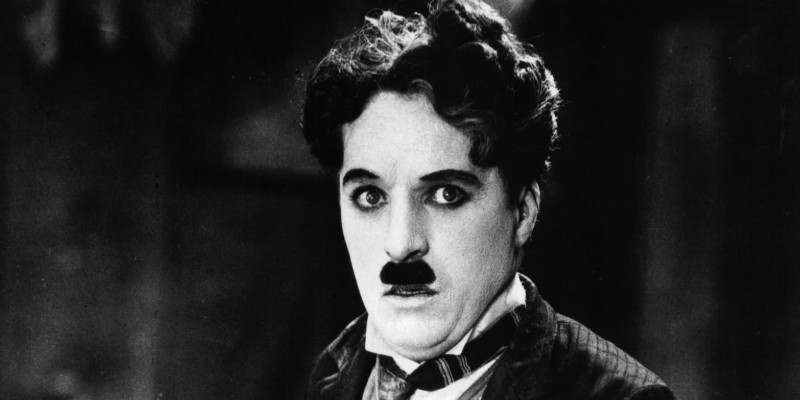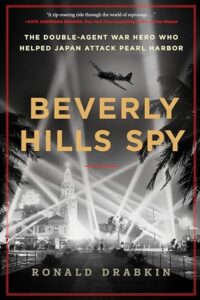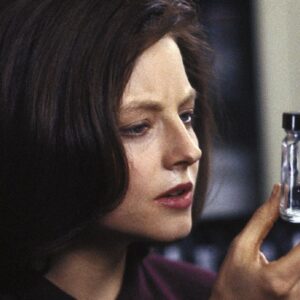May 1932
Charlie Chaplin was visiting Japan with a group that included his brother Sydney Chaplin, and Chaplin’s Japanese personal secretary, Toraichi Kono. Chaplin had been to Japan a decade earlier for work, when he and Fatty Arbuckle performed in a silent comedy show. This time, the purpose of the trip was purely pleasure. The group spent their time in Japan seeing traditional Japanese art, attending performances of Japanese dance, observing traditional craftsmen at work, and viewing the natural beauty of locations such as Miyanoshita and Mount Fuji.
Japan’s prime minister, Tsuyoshi Inukai, had arranged for his son to take Chaplin and his party to watch a sumo wrestling match. They took a place of honor in the front row and marveled at the spectacle of the immense men in their loincloths crashing into each other. During one bout, they heard screams and commotion from an entrance above. Turning around, they saw armed soldiers pushing their way through the mass of spectators toward their seats. The soldiers looked serious and surrounded them but didn’t appear threatening. Everyone was shouting. Not understanding anything being said, the Chaplins were a bit scared, but it ultimately seemed that the soldiers were there to protect them. As they were being escorted toward the exit by the soldiers, Chaplin demanded, “Kono, what on earth is happening?”
Kono said, “They say we are in danger, sir, and we need to come with them for our safety.” Chaplin saw shock on the face of their host, the young Inukai. It was the face of a young man who has just been told his father has been killed. The Chaplin party was promptly escorted back to the Imperial Hotel via taxi. As they looked out the car window, they saw soldiers running around all over the city.
Prime Minister Inukai had been assassinated in an attempted coup. The prime minister’s assassins were a group of young officers from the Japanese Navy. They thought the prime minister needed to die because he didn’t believe enough in militarism and hadn’t funded the navy enough.
The coup attempt went no further, and the assassins were arrested. Later, they told the court more about their goals. They wanted to start a war between Japan and the United States, immediately—believing that if they had been able to kill Charlie Chaplin, the United States would be so angry it would have caused a war to erupt between Japan and the United States.
Chaplin was rattled that he had been targeted for assassination. He was also very confused, because he thought the assassins made no sense at all. He couldn’t see America fighting another country over any celebrity. But it made no sense on a more basic level. He noted that “they wanted a war with America, but I’m British. I’m not even American.” He wasn’t sure that most Japanese understood that point. It was clear that the assassins didn’t like the twin foreign influences of Hollywood movies and jazz music. They wanted the populace angry at the West, and that narrative was threatened by a wildly popular Westerner—Chaplin—coming to Japan to make people laugh.
Chaplin and his party briefly remained in Japan to give further statements to the police and personally pay his condolences to the prime minister’s family before taking a ship home to Los Angeles.
The assassins’ plot illustrated that, at this early date—almost a decade before Pearl Harbor—many in Japan were seeing war with America as inevitable. Strikingly, the assassins were members of the Japanese Navy. It seems the Japanese Navy—the organization that eventually led the attack against the United States at Pearl Harbor—was mentally preparing itself for war, so much so that some young officers had decided it was worth committing political assassination to help make that war happen.
Another alarming sign was how much enthusiastic public support the assassins received. The court received a petition with tens of thousands of signatures to have them declared innocent. A group of youths offered the court to take the place of the assassins in the courtroom—an offer coupled with one finger of each petitioner pickled in a jar, as a demonstration of their sincerity.
The light sentences the assassins eventually received were an indirect sign that Japan’s march toward war would continue, and that the government’s control over the military was not strong.
Zacharias was at sea when he first heard about the incident, and it made further alarm bells go off in his head. The incident was evidence that Japanese society was taking a step forward toward the consensus that war with the United States would come—a sentiment that would snowball, little by little, until war finally broke out.
Before leaving Japan, Chaplin’s mind wandered to the dinner he had with his brother Sydney and Kono the night before the assassination. During the meal, six young men entered. One sat next to Kono. There was some talk of dishonor and insult, something about ancestors and pictures painted on silk—Chaplin couldn’t quite recall. What he did remember was how scared Kono looked. Kono—tall, distinguished, well-dressed— was normally cool as a cucumber. Chaplin wondered if this incident was related to the assassination attempt.
The Hiroshima-born Toraichi Kono had been hired by Chaplin fifteen years before and had driven Chaplin’s car and acted in a couple of films before Chaplin made him his personal assistant. He fit the image Chaplin wanted to project to the world. When Kono had first arrived at Chaplin’s house for a job interview, dressed in a double-breasted suit and hat, Chaplin took one look at him and exclaimed, “You are smart!”
By the early 1920s, Kono was managing Chaplin’s household, bringing in Japanese maids, butlers, gardeners, and chefs. Chaplin’s reliance on Kono only increased his fondness for the Japanese. People would ask Chaplin why there were so many Japanese around, and he explained that Japanese servants were superior. For example, Japanese servants got the broom into each corner of the room, unlike their American counterparts, who merely moved the dirt around by sweeping in a circle in the middle.
There was another reason Chaplin preferred Japanese servants: their loyalty and discretion. There seemed to be very little risk that Kono or his Japanese staff would talk to the press. Chaplin perceived Japanese people to be inherently loyal—much more so than Americans, who would sell someone out to the press for a few bucks. In the case of Kono, perhaps his loyalty stemmed from the fact that he was the younger son of a samurai family. Kono himself spoke excellent English, but most of the servants could not. Ambitious gossip columnists were constantly trying to bribe servants to get information on Chaplin and other actors. But it was almost impossible for them to get information from his non-English-speaking staff, who lived in the closed Japanese society in the Little Tokyo section of Los Angeles.
The power of the press to bring down celebrities was terrifying to most of Hollywood. A decade earlier, Chaplin had been shocked at the media circus around his friend Fatty Arbuckle, who had been the second-biggest star in Hollywood after Chaplin. Arbuckle’s movie career was destroyed when he was accused of murder after a young woman died in his hotel room after one of his parties. Arbuckle was eventually acquitted, but it didn’t matter. His murder case had been front-page news for months, and no movie studio would give him a contract again.
Chaplin was himself the victim of a media frenzy during his divorce from Lita Grey, but his career somehow survived. Lita’s accusations had been so salacious that newsboys sold pamphlets on the street describing her side of the story. The stories seemed to be exaggerated, but the basic facts of the situation were bad enough. Chaplin and Grey had gotten married when she was just sixteen. And it was worse than just that—it turned out they had gotten married because she was pregnant. Even more scandalously, the wedding had taken place in Mexico because underage marriage was legal south of the border, but was not legal in California. But somehow, Chaplin emerged from the Grey divorce as big a star as ever.
To date, Chaplin had escaped a career-ending scandal through a combination of good timing and even better luck. But it seemed like it might be just a matter of time. Chaplin’s affair with Grey was not an aberration. He had a reputation for liking young teen girls. Chaplin, like many celebrities in Hollywood, had no trouble finding romantic partners, but even the most untouchable celebrities normally wouldn’t pursue sexual liaisons with minors, which risked not just scandal, but potential arrest. Chaplin’s focus was how to prevent media leaks. For that, he was able to lean on the discreet Kono and his non-English-speaking staff.
There had been other close calls. A decade earlier, Chaplin had been a guest on William Randolph Hearst’s yacht when one of the other guests, a movie producer named Thomas Ince, mysteriously died. No one seemed to know how the man had died, and the other guests weren’t talking. Some of the gossip columnists wrote that it was an accidental shooting, at the hand of Hearst himself, who was really targeting Chaplin over an affair he’d had with Hearst’s paramour, Marion Davies.
Kono yet again helped Chaplin make the best of a potentially disastrous situation. Amidst the confusion of the dead man on the yacht, Kono appeared at the dock after racing down from Los Angeles, collected Chaplin, and escorted him away before most of the press could appear. The official cause of death of the movie producer was that he was eating salted almonds with a peptic ulcer. Scandal handled.
Chaplin kept Kono extremely busy, working him seven days a week. At first, Kono was thrilled to work for Chaplin. He had left Japan fifteen years earlier after a dispute with his father, and now he was a player in some of the most privileged circles in the entire world. He himself was a minor celebrity in Hollywood and in the smaller community of Little Tokyo. However, Chaplin was known to be detail-oriented to the point of perfectionism in his films, and he was similarly demanding on Kono around every last detail of his work. Slowly, the demands of working for Chaplin began to eat at him. At some point, he started to feel he wouldn’t be able to take the abuse anymore.
___________________________________
Excerpted from BEVERLY HILLS SPY: The Double-Agent War Hero Who Helped Japan Attack Pearl Harbor by Ronald Drabkin. Copyright © 2024 by Ronald Drabkin. Reprinted by permission of William Morrow, an imprint of HarperCollins Publishers. All rights reserved.


















